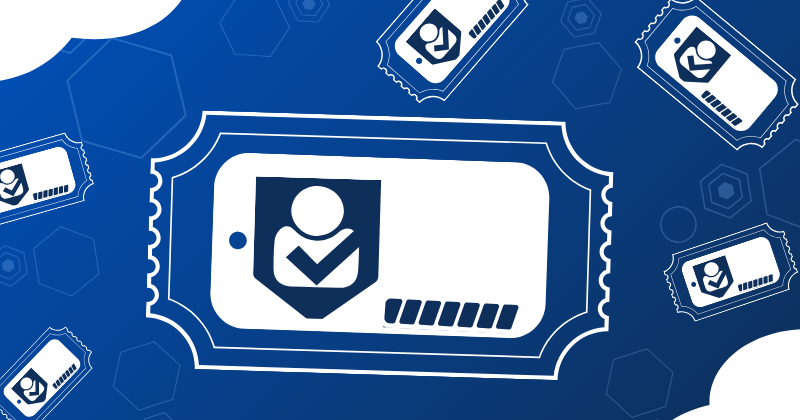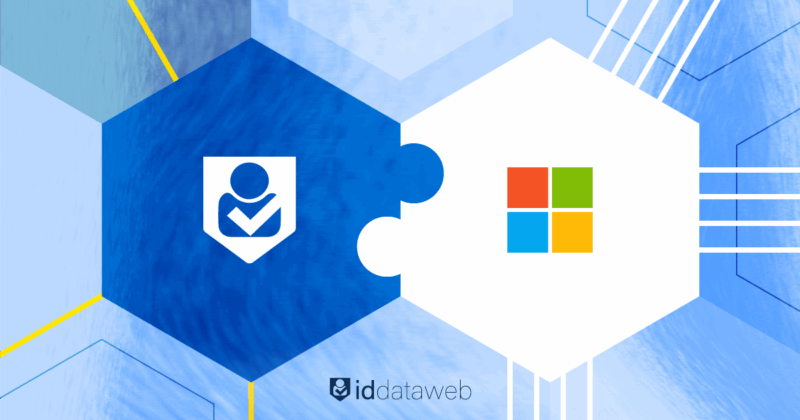Ticket scalping continues to challenge the integrity of event access across sports, music and entertainment. Scalpers routinely purchase tickets in bulk and resell them at inflated prices, preventing real fans from securing face-value seats. In response, ticketing platforms and event organizers have increasingly adopted “Verified Fan” programs to filter out bad actors before sales even begin. This pre-screening phase often acts as a digital gatekeeper, identifying behavioral anomalies and engagement inconsistencies before access is granted.
These programs are also often promoted as a benefit for loyal fans, enhancing engagement and early visibility for upcoming events. In practice, they double as a technical barrier against the most common forms of ticket automation. As a result, they serve both promotional and protective functions, balancing marketing value with anti-fraud efficacy.
These systems require pre-registration and screening, helping to identify legitimate buyers and discourage fraud. While the concept shows promise, the threat landscape has evolved—scalpers now leverage sophisticated identity farming tactics and human proxy networks. Addressing these threats requires moving beyond basic verification to identity-backed controls.
How major ticketing platforms use verified fans (and fan presales)
Ticketmaster leads the market in Verified Fan implementation. Fans register ahead of time and are screened based on behavioral and historical data. Those approved receive credentialed access to purchase during an exclusive presale window.
The company’s system has evolved through multiple iterations, incorporating real-time risk assessment tools and device fingerprinting to identify abnormal behaviors. These tools often work behind the scenes analyzing login frequency, IP address anomalies and account linkage patterns to evaluate risk scores, even before presale codes are issued. This silent, behavioral vetting adds depth to traditional screening, uncovering fraud signals that aren’t obvious in account credentials alone.
This system limits the effectiveness of automated attacks by reducing the number of accounts granted access. Ticketmaster has stated that this process significantly increases the likelihood that tickets reach genuine fans.
Artists, promoters and venues also run presales targeted at fan clubs, email subscribers, or local audiences. These campaigns are positioned as loyalty rewards but also serve as access control filters. Sports organizations have adopted similar practices, offering presales to season ticket holders or residents within a defined geography.
Each version of Verified Fan aims to restrict early access to trusted users—an approach that, while effective in many cases, has limitations when it comes to enforcement and identity assurance.
What’s working: successes of verified fan programs
Verified Fan registration has reduced the volume and success rate of bot-driven attacks. According to Ticketmaster, bot activity is intercepted earlier in the sales process, improving ticket availability for real users. As reported by VICE, this tactic was critical during The Cure’s 2023 tour, where scalped inventory dropped compared to prior years. This earlier intervention in the sales process disrupts the cycle of mass automation more effectively, giving real fans a fairer chance of success.
These improvements have led to measurable gains in ticket equity—defined by fan organizations as the share of face-value tickets obtained by actual attendees. While this metric is difficult to standardize across platforms, anecdotal evidence and artist-reported feedback indicate improved outcomes.
Sports organizations have long used restricted presales as a way to prioritize loyal fans. Exclusive access for season ticket members, alumni groups or nearby residents ensures that high-demand events serve the intended audience.
When layered with data-driven verification or geo-targeting, these measures reduce opportunities for outside manipulation and limit resale exploitation.
Gaps in current verified fan systems
1. Multiple identities & account farming
Scalping operations maintain networks of fake accounts, often tied to unique phone numbers and email addresses. These account farms enable mass registration under different identities, bypassing standard screening criteria. Some resellers even purchase verified accounts outright to access credentialed presales.
These accounts are sometimes set up months in advance, warmed up with minor purchases and engagement activity to appear legitimate. Some brokers have even begun renting out aged accounts through online marketplaces, making it harder for verification tools to spot suspicious behavior.
The 2023 VICE investigation referenced above revealed brokers actively selling entire verified Ticketmaster accounts—complete with verified access and codes—a clear sign that attackers were targeting the weakest link: identity assurance.
2. Presale code sharing or sales
Presale access codes are often shared or sold on secondary markets, diluting their intended purpose. Without additional enforcement or identity binding, these codes function more as transferable assets than secure credentials.
3. “Hire-a-buyer” schemes
Where bots struggle, human networks thrive. Some operations now enlist individuals—either knowingly or unknowingly—to buy tickets using their own credentials. These decentralized efforts make it harder to detect fraud at scale and allow tickets to be resold without triggering alerts.
The role of Electronic ID Verification (eIDV) in strengthening ticket security
IDV leverages authoritative identity data—such as government-issued IDs or mobile network attributes—to confirm that users are who they claim to be. Unlike basic account screening, eIDV validates key identity elements against secure real-time sources.
This layered approach to verification is especially useful in markets where high-demand tickets attract organized fraud rings. For example, international sports or entertainment events, even global tours are frequent targets due to their resale value, making identity integrity even more critical.
This shift allows platforms to reject not only bots but also synthetic identities and recycled accounts that pass surface-level checks.
As we mention in this ticket scalping and identity verification post, solutions like our MobileMatch™ allow for document-free identity verification through a mobile-friendly experience. Instead of requiring uploads or long wait times, users confirm their identity through fast, intuitive methods backed by authoritative sources.
This frictionless workflow supports adoption while delivering a much higher standard of verification behind the scenes.
When integrated into a presale system, eIDV ensures that each code or link is tied to a verified individual—not just an account. Users complete a one-time verification before receiving presale access, and the resulting credential is bound to their identity.
This approach blocks code sharing, deters account resale and raises the bar for all presale participants. It also simplifies fraud response and accountability for ticketing partners. It builds a more defensible system where every buyer is tethered to a known identity, creating better conditions for post-event auditing and fraud analysis.
eIDV enables good-faith resales through official channels
eIDV is equally powerful on the backend. When implemented at the point of ticket transfer, it ensures that resale occurs only within official channels and only to validated individuals. This prevents scalpers from offloading tickets anonymously and introduces traceability into the secondary market.
Industry data is beginning to demonstrate that platforms that adopt identity checks for transfers can see a significant reduction in fraud—a compelling signal that identity integrity protects both buyers and event partners.
Some organizations are already piloting identity-bound ticketing models, where tickets are non-transferable without re-verification. These programs are especially valuable in high-security events, VIP settings and premium experiences.
Takeaway
Verified Fan programs have helped restore some fairness to ticket sales by limiting bot access and promoting early engagement from real fans. However, they are not a comprehensive solution.
They also signal a broader shift in how the live events industry is now approaching digital security. Rather than relying on deterrents alone, leading platforms are increasingly embracing proactive identity strategies that mirror sophisticated approaches used in online banking and insurance.
As scalpers adopt more advanced tactics—including identity manipulation, credential sales and human proxy networks—the industry must respond with equally advanced defenses.
Please also read this earlier post describing how electronic ID Verification (eIDV) offers a scalable, privacy-conscious way to harden ticketing systems. By binding access to real identities and enforcing trust at every transaction point—from presale to transfer—eIDV helps platforms, venues and fans stay ahead of fraud.
Ticketing security isn’t just about blocking bots—it’s about establishing accountability. And in today’s landscape, that starts with knowing your customer.












